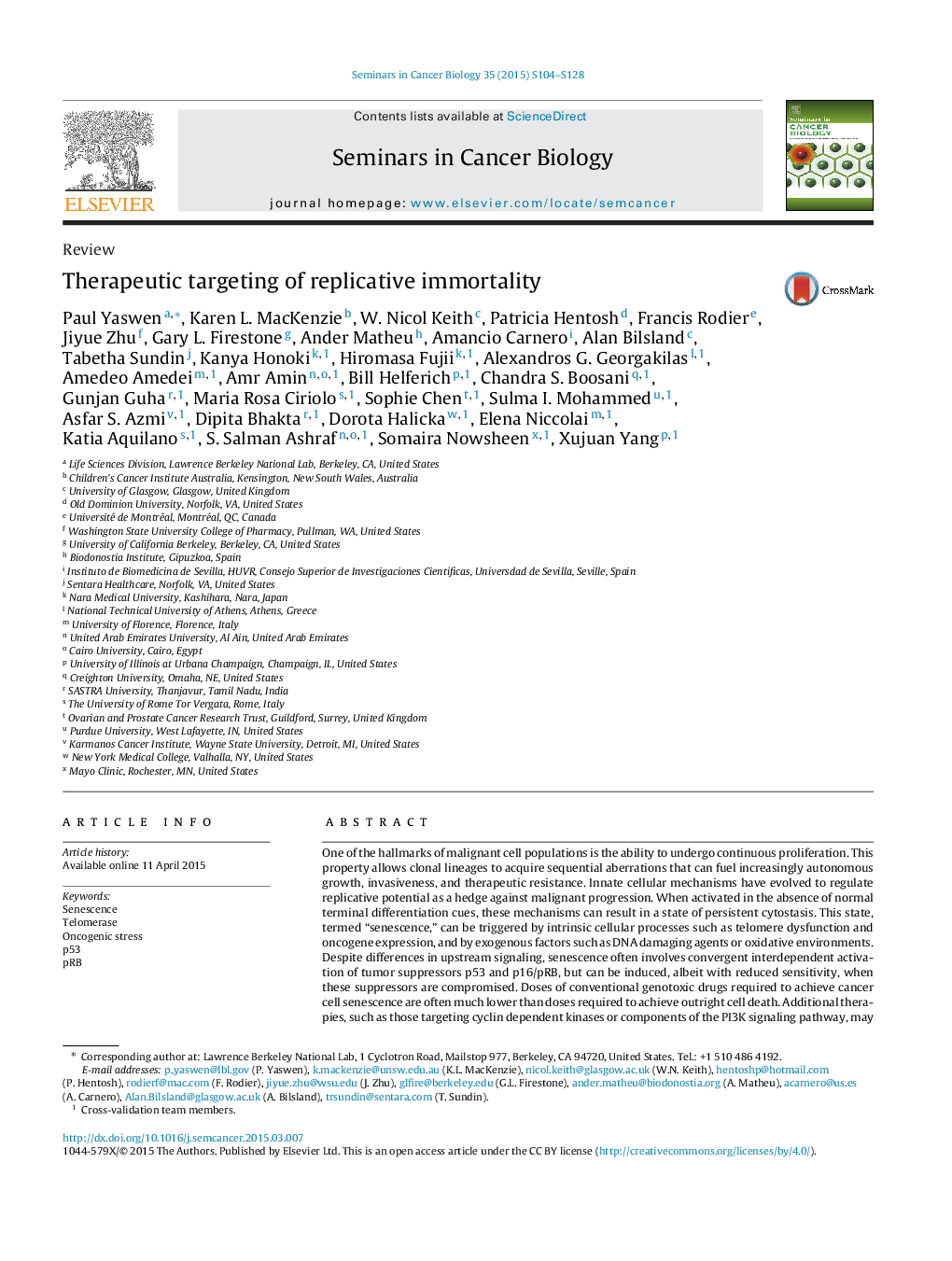| کد مقاله | کد نشریه | سال انتشار | مقاله انگلیسی | نسخه تمام متن |
|---|---|---|---|---|
| 2023665 | 1069788 | 2015 | 25 صفحه PDF | دانلود رایگان |
One of the hallmarks of malignant cell populations is the ability to undergo continuous proliferation. This property allows clonal lineages to acquire sequential aberrations that can fuel increasingly autonomous growth, invasiveness, and therapeutic resistance. Innate cellular mechanisms have evolved to regulate replicative potential as a hedge against malignant progression. When activated in the absence of normal terminal differentiation cues, these mechanisms can result in a state of persistent cytostasis. This state, termed “senescence,” can be triggered by intrinsic cellular processes such as telomere dysfunction and oncogene expression, and by exogenous factors such as DNA damaging agents or oxidative environments. Despite differences in upstream signaling, senescence often involves convergent interdependent activation of tumor suppressors p53 and p16/pRB, but can be induced, albeit with reduced sensitivity, when these suppressors are compromised. Doses of conventional genotoxic drugs required to achieve cancer cell senescence are often much lower than doses required to achieve outright cell death. Additional therapies, such as those targeting cyclin dependent kinases or components of the PI3K signaling pathway, may induce senescence specifically in cancer cells by circumventing defects in tumor suppressor pathways or exploiting cancer cells’ heightened requirements for telomerase. Such treatments sufficient to induce cancer cell senescence could provide increased patient survival with fewer and less severe side effects than conventional cytotoxic regimens. This positive aspect is countered by important caveats regarding senescence reversibility, genomic instability, and paracrine effects that may increase heterogeneity and adaptive resistance of surviving cancer cells. Nevertheless, agents that effectively disrupt replicative immortality will likely be valuable components of new combinatorial approaches to cancer therapy.
Journal: Seminars in Cancer Biology - Volume 35, Supplement, December 2015, Pages S104–S128
